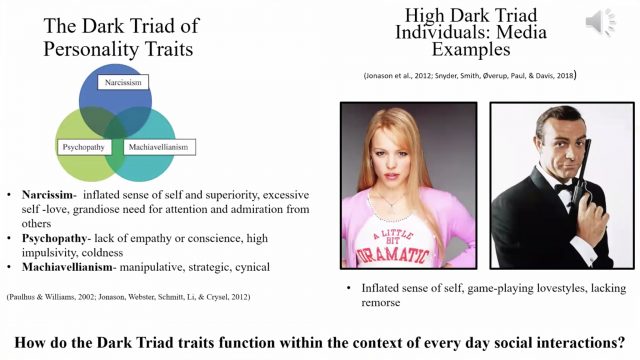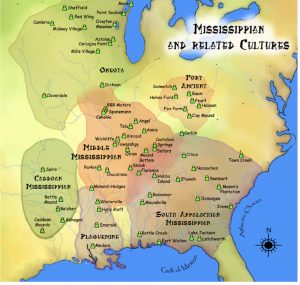
UM senior psychology major Ali Buchanan explored ‘The Dark Triad and Friendships: Daily Social Interactions’ for her Summer Undergraduate Research Experience.
OXFORD, Miss. – From exploring new melanoma detection methods to analyzing early Mississippian frontier structures, 11 University of Mississippi undergraduate students advanced their research and creative achievement pursuits this summer thanks to a university fellowship program.
As fellows of the Summer Undergraduate Research Experience program, the students conducted individual research and creative achievement projects for nine weeks this summer while working with a faculty member as a mentor.
“Experiential and research experiences are so impactful for undergraduate students, and we are always seeking ways to provide those opportunities,” said Josh Gladden, UM vice chancellor for research and sponsored programs. “These programs help sharpen problem-solving skills, typically in team environments, and communication skills that help shape the next steps for the student and give them a leg up in the job market once they graduate.”
Since the program’s inception in 2018, 40 undergraduate students have received valuable knowledge and skills exploring a range of themes through the experience, which is designed to expand and enhance the university’s undergraduate research and creative achievement efforts.
At the end of the experience, the student’s work is intended to result in or contribute to a finished product that is significant, such as a presentation of the student’s creative work or a publishable paper.
This year’s students gave virtual presentations of their research at the end of the program. Those presentations are available via eGrove, the university’s digital institutional repository.
Carson Schmitz, a psychology major, used her fellowship to study “Race and Anxiety Sensitivity as Predictors of E-Cigarette Use” under the direction of Laura Dixon, assistant professor of psychology.
Schmitz was first introduced to the topic while serving as a co-author on a poster presentation.
“After digging into the electronic cigarette literature for this poster, I was intrigued by the newness of electronic cigarettes and the lack of research that had been done on them,” she said. “Similarly, very little research has been done examining race and anxiety sensitivity, which was a surprise to me.
“In addition to these factors being researched very little, I could not find any studies that have examined race, anxiety sensitivity and electronic cigarettes specifically. Because of that, this research really makes me feel like I am adding something to the literature.”
While the summer experience has ended, data collection is continuing for Schmitz’s research, with further studies this fall. A senior in the Sally McDonnell Barksdale Honors College, Schmitz is using her research as a part of a larger undergraduate honors thesis, so she also is busy writing and editing that manuscript.

Sydney Warren, a computer science major, explored ‘Experimental Data Mining for Damage Detection in Reinforced Concrete Structures’ as part of the Summer Undergraduate Research Experience.
Once the thesis is finished, Schmitz will look into submitting the manuscript to a peer-reviewed journal. On track to graduate in May, she plans to apply to a doctoral program for the fall of 2021 and to pursue a Ph.D. in clinical psychology.
“I think the Summer Undergraduate Research Experience prepared me for future research endeavors by improving my communication skills as well as my independent study and time management skills,” she said. “Through this fellowship, I learned how to communicate with peers as well as mentors and also how to time-manage for myself when there is no one else to keep me accountable.
“I was also able to learn about research processes and improve some relevant research skills such as submitting an institutional review board application, submitting to a conference, cleaning and analyzing data, and explaining findings to peers not in my field.”
For Ali Buchanan, also a senior majoring in psychology, the summer program provided her an opportunity to further investigate the Dark Triad, a trio of negative personality traits: narcissism, Machiavellianism and psychopathy.
She was first introduced to the Dark Triad in an Ole Miss class taught by assistant psychology professor Carrie Smith and was fascinated to learn more.
“I ended up taking several more courses from Dr. Smith and joining her research lab, ISHTAR, where I got to learn a lot more about the Dark Triad – and it only got more interesting,” she said. “In Dr. Smith’s course PSY 456: Psychology of Interpersonal Relationships, I really began to understand and think about how personality traits and other factors influence our interpersonal relationships and the importance of using longitudinal data to look at these relationships.
“By the end of that course and with the additional experience I got through being a research assistant, I was much more prepared to do some independent research based on my interests.”
That independent research led her to the Summer Undergraduate Research Experience program and the project “The Dark Triad and Friendships: Daily Social Interactions,” with Smith serving as her mentor.
The program gave her a better understanding of the process of cleaning and preparing data. And, through attending workshops on multilevel modeling, Buchanan also learned some advanced statistics skills that she can apply to future research endeavors.
“A really big lesson that I learned is the importance of having a good understanding and foundation in statistics for psychological research,” she said. “Another huge takeaway for me was getting down my ‘elevator pitch,’ or in other words, being able to talk about my research in a way that is understandable and can be done in three to five minutes.”
Buchanan is running analyses to see if the data supports her research questions. Next, she will be applying to present the research at psychological conferences and preparing a manuscript for peer review submission.
Upon graduation, Buchanan plans to apply to doctoral programs in experimental social psychology, where she will continue her research that pertains to the Dark Triad and interpersonal relationships, as well as gender and human sexuality.
The other nine students involved in the Summer Undergraduate Research Experience, their projects and their mentors were:
- Radhakrishna Adhikari, a mathematics and physics major, worked on a proposal titled “Computing Projection Distance Correlations.” Adhikari’s mentor was Xin Dang, professor of mathematics.
- Akhil Alasandagutti, a computer science major, explored “Improving Automated Diagnosis of Pigmented Skin Lesions Toward Melanoma Detection Using a Hybrid Approach.” Alasandagutti was mentored by Dawn Wilkins, chair and professor of computer and information science.
- Aayush Dhakal, a computer science major, investigated “Dimensionality Reduction to Enhance Malaria Infected Cell Classification.” Dhakal’s mentor was Yixin Chen, professor of computer and information science.
- Jessica Hall, a communication sciences and disorders major, examined “Light and Heavy Verb Production Across Discourse Elicitation Tasks in People with Nonfluent Aphasia.” Hyejin Park, assistant professor of communication sciences and disorders, served as Hall’s mentor.
- Claire Harper, a communication sciences and disorders major, explored “Early Intervention Evaluations and Therapy.” Harper was mentored by Myriam Kornisch, assistant professor of communication sciences and disorders.
-

Sophie Husslein, an anthropology and German major, worked on a proposal titled ‘Archaeological Analysis of an Early Mississippian Frontier Structure in Southwestern Virginia’ as part of the UM Summer Undergraduate Research Experience.
Sophie Husslein, an anthropology and German major, worked on a proposal titled “Archaeological Analysis of an Early Mississippian Frontier Structure in Southwestern Virginia.” Husslein was mentored by Maureen Meyers, associate professor of anthropology.
- Allie Sidwell, a biology major, examined “Measuring Markers of Oxidative Stress from Fine Particulate Matter.” Sidwell’s mentor was Courtney Roper, assistant professor of environmental toxicology and assistant research professor in the Research Institute of Pharmaceutical Sciences.
- Sydney Warren, a computer science major, explored “Experimental Data Mining for Damage Detection in Reinforced Concrete Structures.” Warren was mentored by Elizabeth Ervin, associate professor of civil engineering.
- Morgan Williams, an economics and mathematics major, investigated “An Analysis of Human Risk Aversion and Irrationality in Driving.” Mark Van Boening, professor of economics, served as Williams’ mentor.